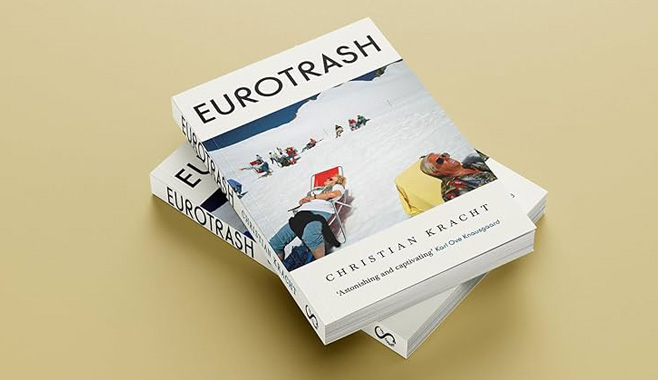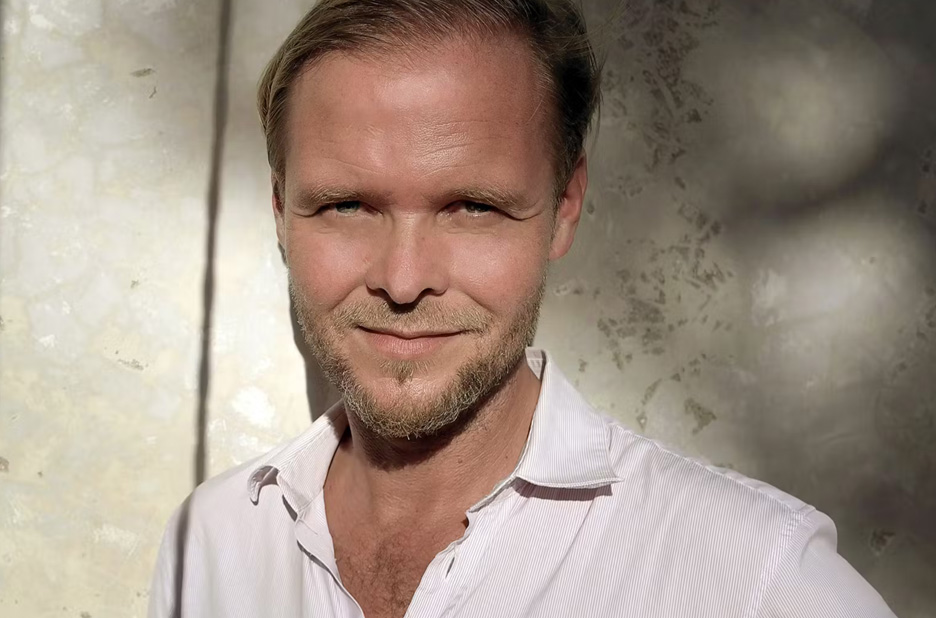Book
Eurotrash
Christian Kracht
4/5
Humorous self-defeating search for authenticity
In this highly amusing autofictional novel recounting the last debauched and ridiculous Swiss road trip of an elderly mother and her son, Kracht obscures all miniscule glimpses of substance and reassurance with layer upon layer of European guilt, neuroses and superficiality.


Like two Beckett tramps, the writer’s alter ago Christian and his mother, a wreck in her eighties with a flimsy memory, witty repartee and a colostomy bag, surviving on pills and cheap booze, travel from Zurich to Geneva and back again, failing to communicate and commune, but succeeding in passing the time in bickering and recriminations as they must have always done. “A constant loss, a constant capitulation”.
Christian’s unreliable narrator fixates on family wealth derived from Nazism which continues to paralyse him. No action can expiate this original sin. He relates the family disfunction to many other abuses which the reader is not sure are all true. He exists as nomadically as possible away from Switzerland and has an ambivalent relationship with his language, German, which “had always been the scorched earth”. His father’s rich art collection pains him even after his father’s death, and even when he hears of it being auctioned when it no longer has anything to do with him.
When Christian arrives back in Zurich at the beginning of the novel, he impulsively buys a scratchy hand-knitted woollen sweater from a commune’s stall and this hideous object that accompanies him on the trip symbolises his need for authenticity of which he is not capable. But in the same breath as mocking himself as a needy cowardly creature with a passable gift for storytelling, Christian successfully lampoons the intellectual pretention of others. Gentle ribbing is also deflected towards the writer Daniel Kehlmann who people repeatedly take him for.
The spirit of Thomas Bernhard is alive and well in scathing appreciations of Switzerland. Of Zurich he says “it was merely a city of moneygrubbing middle management and depressing hustlers and reserve lieutenants”. In Bern in contrast Christian is “always initially astonished at the crassness of the faces of the Bernese, at their rustic deviousness and their wily Swiss instinct towards hostility, at their slightly protruding lower jaws and the expectant expression in their gaze, at this constant careful expectancy and their ossified insistence on their own provinciality. Though I have to say I’d always preferred the Bernese a thousand times over the Zurichers and their affected, absolutely baseless pomposity.” And in Geneva: “I had always hated Geneva, that dreadful, phony, ice-cold Protestant city, full of poseurs and braggarts and bean counters. Calvingrad is what we’d always called Geneva. I preferred Zurich a hundred thousand times more.” And there we have a dense thicket of ambivalent feelings towards the homeland which can never be unpicked.

The indictment of Switzerland is summarised succinctly when Kracht writes: “There was no music and no films and no literature, there was nothing whatsoever in Switzerland except that Swiss longing for more banal luxury, the desire for sushi and colourful sneakers and Porsche Cayennes (…).” But even Switzerland is better than Germany, Kracht’s character opines, forever stained by its Holocaust crimes.
There is an amusing reference to David Bowie which runs through the novel, a little thread of desired otherness and distraction, with Christian envying Bowie’s ugly teeth. The exchange between mother and son about David Bowie is masterfully entertaining in its irony and mock naivety.
The only thing Christian’s mother enjoys in Christian’s presence is his stories and she often begs him to tell one. One of the most satirical is a story of a Switzerland, “which has always had a special relationship with death”, where the death penalty has been repealed and public executions are taking place. First of Tamils, then one day of Germans and maybe the vegans, but not the real Swiss. And people just get used to it and forget what life had been like before. Nihilist and cynical vision perhaps, but inching closer to the bone.
Kracht equates money with trash and mother and son want to give away mother’s remaining cash, but even this engenders comical and unsatisfactory narrative turns. Mama has some memorable hilarious and astute lines. Despite her deterioration, she still has an acute insight into her son’s thinking.
Although Eurotrash suffers from an excess of shallowness, an intention openly stated in the title, it nevertheless succeeds in landing its ironic punches, and giving an emotional tribute to Kracht’s mother, who died a few days after he finished the book. Eurotrash was adapted for the stage for Schaubühne in Berlin and premiered in 2021. The masterful dialogue must make this eminently watchable, and let’s hope it travels to English stages at some point.
Eurotrash is translated by Daniel Bowles